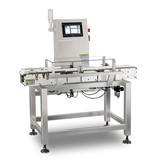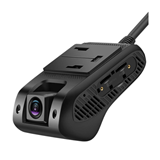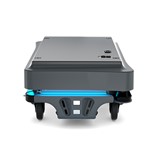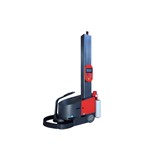National Australia TMT leader Damien Tampling launched the Deloitte global Technology, Media and Telecommunications (TMT) report for the technology sector in 2012, which predicts overall demand for consumer technology will defy the economic headwinds of 2012.
"We expect to see new record numbers of smartphones and tablets sold as well as computers of all descriptions. And although global television sales will be modest, this will be boosted by the growing demand from emerging markets for lower-cost televisions and computers," Tampling said.
"Our global research indicates that consumers are more likely to defer spending on the ‘big-ticket’ items, like holidays, a car or even a sporting event, in favour of consumer electronics. Given the plummeting cost of technology over the past three decades, consumers can achieve an outstanding ‘bang for their buck’.
"There are opportunities around both the consumer and the vendor in 2012, as customers may well choose both a new computer and television, rather than spend on a bigger ticket item like travel.
"The dollar value of the market however will be moderate. The average Australian household is predicted to spend around 2 per cent of their weekly disposable income, just under $24 per week, on home computer equipment, including pre-packaged software and mobile phone related expenses; a similar proportion to the US spend."
The predicted spend by Australian households on computers and software in FY12 is estimated to be $5.44bn, 80% of the estimated $6.8bn total.
It takes two to tablet: the rise of the multi-tablet owner
The other key prediction from Deloitte’s global TMT report that will resonate in Australia is the rise of the multi-tablet owner.
"The tablet explosion has shown little sign of slowing since it hit the market in 2010," Tampling said.
"It is set to take the mantle of the most rapid ‘multi-anything’ market penetration in history."
Deloitte predicts that roughly five million tablets will be sold globally in 2012 to people who already own one - generating up to $2 billion in revenue. In contrast, it took several decades for one household to have more than one car, phone, radio or television, and ten years for a similar landmark to be reached in the computing and mobile phone markets.
"More tablets per household and more again in the workplace, may well further expedite consumer’s moves away from traditional print media, in particular print news. If possible, this trend could only provide further impetus to testing new product and pricing models in this space," Tampling said.
Tampling pointed out that an interesting development in the workplace: "is that employees are also very quickly moving away from the standard issue of IT hardware (and even software) and bringing their own tablets, smart phones and even laptops to work."
"In some services industries like ours, they are also going so far as to set up their own ‘hot spots’ so they can access the internet from their preferred device and transfer data more easily between people on projects" he said.
"The ubiquitous tablet is penetrating the corporate world, with more than 25% of tablet sales in Australia expected to be generated by companies seeking greater mobility for their employees.
"This is both an opportunity and a challenge. It gives companies the chance to rethink how they provide on support hardware. Perhaps consider a shared model with their employees and so defray their costs? The challenge for content owners, network operators and retailers is that companies are likely to require tablets to have greater security and ruggedness.
"Any vendor that is able to offer seamless sharing among families of devices – as a well as a common user interface – is likely to get the competitive advantage.
"And given the steady rise in tablet ownership, network operators will also need to evaluate the impact of this on connectivity and possibly new data usage plans.
"The demand for faster bandwidth and more data can be met in the workplace, in part through Wi-Fi, with data backups between tablets sent via short range networks."
The other four technology predictions
Deloitte anticipates the following to be likely to have significant medium to long term effect in the Technology, Media and Telecommunication and other industries:
1. Billions and billions: big data becomes a big deal
2. Hard times for the hard drive: solid state storage
3. Ambient Radio Frequency Power Harvesting: A Drop in the Bucket
4. 3D printing is here - but the factory in every home isn’t here yet
Billions and billions: big data becomes a big deal
Until 2010, traditional data tool capacity had more or less kept pace with growth in data sets. However social networks, real time consumer behaviour, mobility, sensor networks and other data generating sources have caused many organisations’ data warehouses to overflow.
From a total industry revenue of only $100 million in 2009, in 2012, Fortune 500 companies will kick off big data initiatives which will trigger industry revenues of between $1 billion and 1.5 billion.
Although Big Data is still in its infancy in Australia, and in most of the world where it is used for meteorology and physics simulations, interest is gaining pace. Internet companies have led the way, but fast followers are likely to include the public sector, financial services, retail, entertainment and media.
"This could add to the current skill shortages so prevalent in Australia and in the US given the predicted 190,000 professionals needed to cope with demand over the next five years," Tampling said.
He added that on the tech skills front in Australia, in some areas, the Philippines would appear to be emerging as the new "India".
Hard times for the hard drive: solid state storage
Deloitte predicts that in 2012 the storage world will reach a turning point. Although the traditional hard disk drive (HDD) is far from extinct, there is likely to be a dramatic increase in demand for solid state drive technology (SSD) across a number of markets.
The two biggest advantages of SSDs are size and power. They take up half the room of an HDD, weight half as much, and use half the power. However they are roughly ten times more expensive per gigabyte (GB) than HDDs despite the price per GB declining by half every 18 months.
HDDs’ price decline is even more rapid at 50 per cent every 14 months. By the end of 2012, solid state storage for small devices such as MP3 players, smartphones and tablets will be likely to account for 90 per cent of the market, compared to 20 per cent in 2006, and a sixth of the laptop segment.
The report’s research shows that the storage technology used for the world’s consumer devices is mostly taken for granted by consumers as they increase their desire for smaller, lighter gadgets. However the cloud could turn that around and provide a boost for the solid-state drive providers driving a savvier consumer to start to pay more attention to how much storage they actually need on specific devices as more cloud-based storage services become available.







-160x160-state_article-rel-cat.png)



-160x160-state_article-rel-cat.png)


-160x160-state_article-rel-cat.png)






